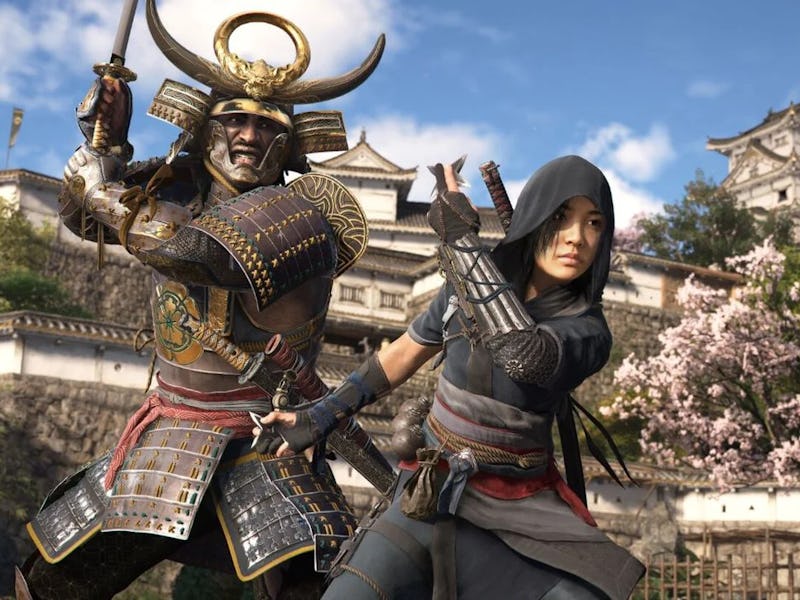Assassin’s Creed Shadows Learns An Important Lesson From The Past
Bigger is not always better.

All early signs point to Assassin’s Creed Shadows being an exceptional entry in the long-running series. It’s a back-to-basics approach to gameplay blending the social stealth elements of older games with the combat-forward encounters that defined more recent titles. It is set in feudal Japan, a setting players have been clamoring for since 2008. And its two protagonists offer a unique lens through which the player will experience the setting players have experienced in other recent games.
This week, the game’s associate director revealed that Shadows is making another bold decision that should go over well with wayward fans: a smaller world map. Ubisoft Quebec developer Simon Lemay-Comtois told Video Games Chronicle that the upcoming game will scale back the sheer scope of the open world, at least compared to the last mainline entries in the series.
“It’s about roughly similar to Origins, so it’s smaller than Valhalla in terms of territory,” he said. “There is some body of water around Japan, but it’s not like [Odyssey’s] Greece was, [which was] half water.”
Compared to its predecessors, Assassin’s Creed Shadows will be a much more approachable game to explore.
The team is resisting the temptation to faithfully realize the scale of the real-life island nation as past games have tried to do with its settings.
“The story that we focus on is mostly on central Japan, so we don’t expand all the way to the entirety of Japan, so, therefore, we knew we had a rough idea for the territory we wanted to cover,” Lemay-Comtois said.
Shadows being a smaller experience compared to the last few games is good for players who may have been turned off by the hundred-hour experiences that the franchise morphed into since 2017. Last year’s semi-spinoff Assassin’s Creed Mirage was largely a direct response to this growing criticism of the series, and it’s great to see developers carry that lesson forward.
Through its two protagonists, Assassin’s Creed Shadows is finding a happy medium between old and new games in the series.
That’s not to say that Shadows won’t be massive. Those familiar with Origins can attest to how large Ubisoft Montreal’s Egypt was. A critical path through that game’s lengthy story left entire regions of the map untouched, so players had more incentive to further explore the gorgeous African country long after rolling the credits. But because Origins was the first role-playing game in the series, the game’s subtle push to see what else the player could discover while completing additional side quests was a welcome novelty.
Subsequent games, however, took this concept and ran with it — for better and for worse. Odyssey’s Greece was three times as large as Origins, an overwhelming geographical beast players had to traverse by land and sea. Valhalla continued the expansion trend in 2020, including England, Norway, and Ireland as exploration territories in old Western Europe.
The Assassin’s Creed games have always been open-world epics spanning several years and countries. But as the worlds have ballooned in size, it’s become evident that keeping these rich, beautiful recreations of the ancient world interesting over dozens of hours has been a serious hurdle. What Assassin’s Creed needs is a way to make these maps more engaging and full of adventure. Hopefully, focusing on players’ experiences might be the perfect middle ground between the grandiose scale and the tightly designed European cities of the Ezio saga.
Assassin’s Creed Valhalla featured an open world that was arguably too large and too barren to keep players engaged for the dozens of hours it takes to complete it.
“We find our footing with the types of cities and castles that we want to represent,” Lemay-Comtois said. “That’s what justifies the size of our world map.”
Newer Assassin’s Creed games like Valhalla and Odyssey certainly have their fans. The large worlds are undeniably awe-inspiring places to be in for hours upon hours as the developers intended, similar to a good massively multiplayer online RPG. But if Ubisoft is trying to get back to what made the series so appealing in the first place, scaling back the expansiveness of its worlds is another great way to do return to its roots.